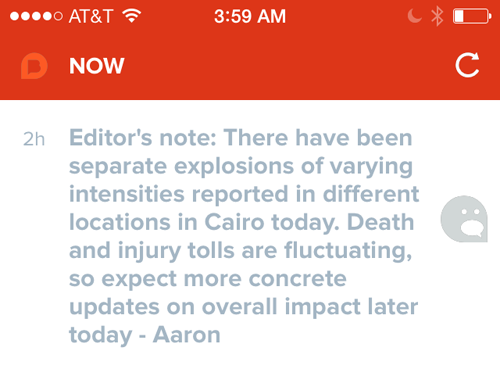Editor’s note: This is a story about editor’s notes.
The team at Breaking News has been tinkering with how to deliver information to readers more effectively on mobile devices. Late last year, its compelling new iteration on its mobile app gave readers the option of customizing what news and alerts are most interesting to them (more Syria, less Miley — or vice versa).
Now they’re giving readers a glimpse into how the Breaking News magic happens. They’re launching something they call editor’s notes, which are granular alerts about news in progress or what the editors are working on. If unconfirmed reports are bubbling up about an event, or if the newsroom is making a change in programming, the notes are a subtle way to tell readers “just thought you should know.”

As Breaking News cofounder Cory Bergman writes:
Editor’s notes offer context surrounding a breaking story, advisories of upcoming events, unique sources we’re seeing and warnings about potential misinformation circulating in social media. It’s essential guidance from our experienced team of journalists to help you quickly navigate the increasingly noisy world of breaking news.
Leave a comment